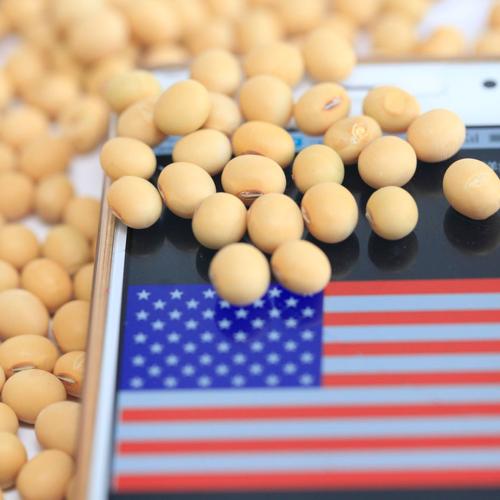



The prospects for a China-US trade deal are on hold for now, but the repercussions of not having one echoed through the political arena and markets on Monday.
Joe Biden, currently the front-runner for the Democratic nomination for US president, criticized President Donald Trump for his handling of the most recent round of trade negotiations, which concluded on Friday.
At a campaign stop Monday in Hampton, New Hampshire, Biden said "the only people paying the price are farmers and working people right now".
"The president has done nothing but increase the tariffs, the debt and the trade deficit," Biden said. "The way we have to proceed is we have to have our allies with us. It's not just us. We have to keep the world together."
On May 2 in Iowa, Biden had downplayed the notion of China as an economic threat to the US.
"China is going to eat our lunch? Come on, man! I mean, you know, they're not bad folks, folks. But guess what? They're not competition for us," he said.
Trump tweeted on Sunday that China is "dreaming" that Biden gets elected in 2020.
Whether China is a major economic competitor or partner likely will be a key issue in the 2020 US presidential campaign.
"Raising tariffs will hurt both US & China economies + more importantly will hurt US farmers/consumers/businesses," tweeted Republican Senator Chuck Grassley of Iowa, a major soybean-producing state.

China announced on Monday that it plans to set import tariffs ranging from 5 percent to 25 percent on 5,140 American products — such as beef, salmon, vegetables, coffee, flowers, batteries and liquefied natural gas — on a revised $60 billion target list.
"China's adjustment on additional tariffs is a response to US unilateralism and protectionism," the Ministry of Finance said. "China hopes the US will get back to the right track of bilateral trade and economic consultations and meet with China halfway."
Trump had announced amid last week's high-level trade talks in Washington that he would raise tariffs on Chinese goods to 25 percent from 10 percent, affecting 5,700 categories of products.
Beijing said on Monday it would "never surrender", reiterating that it was always open to talks, but vowing that China would defend its national interests and dignity.
On Monday, China also said US policies are a threat to the World Trade Organization's viability.
US Treasury Secretary Steven Mnuchin told CNBC that the talks were continuing and he was working on when to travel to Beijing.
The vicissitudes of the trade talks have elicited sharp responses from world markets over the past year, either positively or negatively. That was the case again on Monday.
Global equities tumbled, with major Wall Street stock indices down more than 2 percent each. The Dow Jones Industrial Average closed at 25,325, off 617 points, or 2.4 percent, while the S&P 500 fell 70 points to 2812, or 2.4 percent. The tech-heavy Nasdaq Composite index tumbled 270 points to 7647, or 3.4 percent.
"Trump the Dow Man and Trump the Tariff Man can co-exist for a while, but at a certain point they can't," Megan Greene, chief economist at Manulife Asset Management, told politico.com. "The Dow is down around 2.5 percent now, but I think it's got to be down around 10 percent for Trump to feel significant pressure. So far the tariffs have been angled away from the consumer. But if he goes ahead with the rest of the tariffs, the consumer will really feel the pinch."
Economists and industry consultants maintain that it is US businesses that will pay the costs and likely pass them on to consumers. Consumer spending accounts for more than two-thirds of US economic activity.
US tariffs last year led to reciprocity by China, which imposed 25 percent levies on $50 billion worth of American products, including soybeans, beef and pork, and lower tariffs on a list of $60 billion in goods.
Goldman Sachs economists said recent data showed the costs of Washington's tariffs on China last year had fallen entirely on American businesses and households, with no clear reduction in prices charged by Chinese exporters.
The US has pledged aid for its farmers hurt by tariffs during the yearlong trade dispute. Trump said on Monday that his administration was planning to provide about $15 billion to help farmers whose products might be targeted.
US soybean futures fell to their lowest in a decade on Monday.
Soybean growers are "losing a valuable market, losing stable pricing, losing an opportunity to support our families and our communities", Davie Stephens, president of the American Soybean Association, said in a statement.
Reuters contributed to this story.
If you have any problems with this article, please contact us at app@chinadaily.com.cn and we'll immediately get back to you.